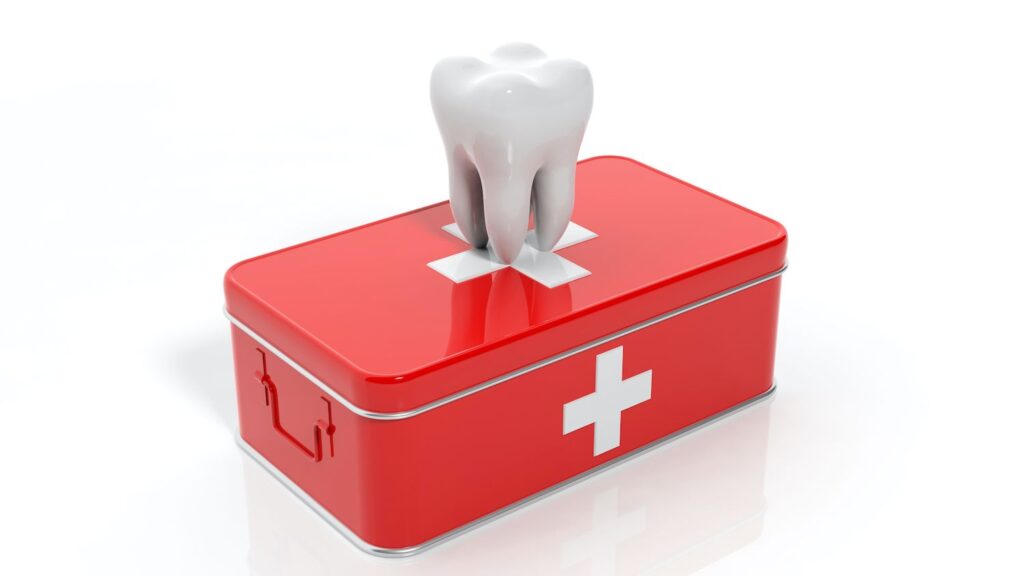Have you noticed a severe jolt of pain in your tooth while eating or drinking? This tooth sensitivity may fade, but it can reoccur frequently. It may feel excruciating when it happens.
Tooth pain of any kind is not normal and is worth seeing a dentist for an evaluation. But do sensitive teeth qualify as a dental emergency? The answer depends on the underlying cause of the symptom.
You can feel more inclined to talk to your dentist about this issue when you know more about it. Read on to find responses from your dentist to frequently asked questions regarding tooth sensitivity, including whether the condition requires urgent dental attention.

What Makes My Teeth Feel Sensitive?
Tooth sensitivity is a type of oral pain that occurs in the wake of damage to your enamel, the outermost layer of your tooth. Though durable, enamel can erode or break over time or under extreme pressure. If enamel thins or weakens, underlying dentin becomes exposed, revealing nerves.
If an external stimulus, like a food item, touches a nerve, it transmits a pain signal to the brain. The pain will stop upon the removal of the stimulus, hence the intermittent effect. Because enamel does not regenerate, tooth sensitivity will usually continue and worsen without help from your dentist.
Does Tooth Sensitivity Require Emergency Dentistry?
Some people may think they can tolerate sensitivity pain in their teeth. But trying to navigate around a painful tooth can distribute uneven pressure as you chew. This can strain the jaw and lead to TMJ disorders, which will mean chronic jaw pain and stiffness.
Plus, if you feel tooth sensitivity, then it means there is some kind of weakness and vulnerability in the tooth. Thinned or damaged enamel may put your teeth at a greater risk of cavities, infections, and other serious problems. So do not delay contacting your dentist for a prompt evaluation of the issue before it worsens.
How Will My Dentist Treat Sensitive Teeth?
Treatment for tooth sensitivity will depend on the severity of the symptom as well as its underlying cause. Sensitivity caused by a brand-new dental filling or other dental work is often temporary and will go away on its own.
If you experience mild enamel erosion and sensitivity, your dentist might suggest using a desensitizing toothpaste. This product will block exposed nerves to bring you relief from uncomfortable sensitivity pain.
Certain dental problems like tooth decay might make your teeth sensitive. In this case, a dentist will need to treat a cavity and provide you with a filling to restore the tooth’s health and structure and stop sensitivity.
Your dentist might need to replace more extensively lost or damaged enamel with a dental crown. This ceramic cap covers the entire surface of a tooth and serves as a shield to prevent stimulation of exposed nerves.
This way, you can protect your smile and find relief from tooth sensitivity. Find the right treatment for your unique smile by booking a dental consultation today.
